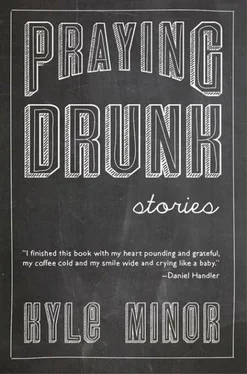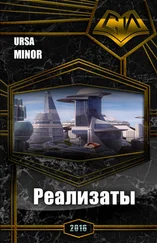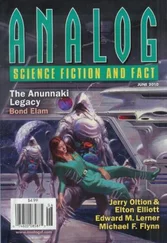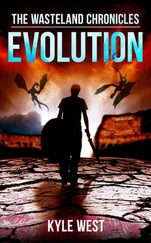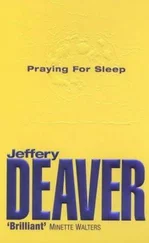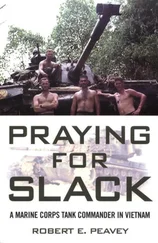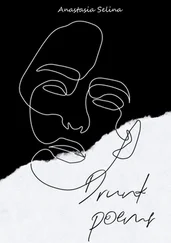After a while we heard the voice of a man screaming. The sound he made was terrible, animal. When his body appeared on the monitor, it matched his voice. It was a wiry, haggard body, muscled and too lean. The man was tall but hunched. He had an overfull beard that curled at its ends. When he came into the frame, the boys began to shout at him and raise their machetes, but they backed away. Then, from the distance, came gunshots. The boys and the man fled alike. We left the video monitor, then, and went into the back of the safe house, where we could achieve a greater distance from the gunshots. We waited until the shooting ended, and then we waited some more.
When we returned to the front room, we looked again at the monitor. The blanket was still lying on the ground, but it no longer carried its burden. Nils asked if the videotape was still running. I checked, and it had ended. We took the tape from the recorder and put it into the VTR in the back room and rewound it. There we saw the men with the guns run past the blanket and past the front of the building and out of the frame. Then we saw the concrete shop and the machine shop across the street taking bullets from both sides of the frame. Two groups of men were shooting at each other. The shooting went on for some time, but not for as long as it had seemed to go on when we were waiting it out in the back room. When it was over, a little boy who could not have been more than seven or eight years old came into the frame. He walked directly to the blanket. His back was to the security camera. We saw him bend down over the bundle and reach in and grab something and begin to pull it out. Slowly — for this child, it was an effort — he came away pulling a pair of arms, a woman’s arms, by the hands and wrists. Nils said, “Is that a white woman?” and when her head came briefly into the frame, the hair did not appear to be the hair I had seen on the head of any Haitian. “Maybe she’s Levantine Haitian,” I said. “Maybe she’s Lebanese.” There was no way to tell for sure, the quarterframe picture was so blurry.
The little boy dragged the woman’s body out the right of the frame, in the direction of the alleys where the squatters have built. Perhaps it was not advisable for us to do what we did, but we opened the front door and walked in the direction from where the boy had come. We walked toward the squatter houses, but when we reached them we did not go any farther. It did not seem wise to go any farther.
When we returned to the safehouse, we watched the tape again and again, but we could not come to any agreement about the woman — was she Dutch? was she Lebanese? was she one of those mythical Polish Haitians everybody’s heard about but nobody’s seen? — except that surely she was dead. And who was the child? And why was he taking her?
Nils made his jokes: We go to the police. We go to the old macoutes. We go to the CIA. We go to the missionaries. We go to the priests. We go to the American soldiers. But the only place we went was home. I have lived here since I was five years old, Angela, and this country is the only home I really know, but the older I get, the less I understand this place. I hate it that you left, but all night I dreamed about that bundle in the blanket, and I was so happy it was not you.
Please, love: don’t return to me.
Q: What do you do in heaven?
A: Drink liquor, blow fire, and pray.
Q: Big G doesn’t mind?
A: With Big G, you have to make your own fun. The streets are paved with gold and lined with jewels. The sky shines with emeralds, diamonds, and rubies. The buildings are constructed of marbles of greens and reds and the fiercest blue. But the edifices are all facade. The storefronts are empty. Nobody needs to sleep or eat or make money, so nobody has to work or make a home. Big G made us crowns, but all we’re supposed to do is throw them at His feet. All the songs are triumphant and resolve to a major key. It’s pretty boring after a while.
Q: Why drink in heaven?
A: It’s a sad place. The climate is milder than hell, but they get the movies and the hard drugs. I’ve spent whole decades making carvings of bricks of heroin I can’t inject, lines of cocaine I can’t snort. All we do most of the time is remember the good bad days, tell stories about them, make books to hold the stories. I once spent a century honing a seventy-ton rock into compliant and foldable pages. I bound them with iron. But most of the time we run toward acid-free paper. I’ve written 397 books so far, but that’s nothing. You should see how my friend Joyce works. She writes so many thousands of books I’m not sure even eternity will be time enough to read them. It’s a grind, if you ask me.
Q: What do you pray for?
A: You always start with the obligatory praises, to butter Him up. Then you ask for more liquor.
Q: How do you blow fire?
A: Take a big suck of air. Pour 151-proof rum into your mouth. Hold a fiery torch near your mouth, at a seventy-five degree angle. Spit for all you’re worth.
Q: How does Big G spend His time?
A: Ducking our questions.
Q: What is the purpose of this book?
A: A catalog of stories and sadnesses, beginnings and endings, the stuff of childhood, death. Nothing new can happen here, so all you do is think about the days of life when possibility hadn’t been ripped from you forever, when anything could happen, and wonder why so much was squandered, so much wasted.
Q: What things do you remember most often, besides your sadnesses?
A: My little brother had a hamster named Eddie. We built him a magical castle made mostly of glass cages connected by plastic tubes, and lined with wood chips we changed every day. We gave him a kitchen, a bedroom, a TV room, a billiards room with a bidet, a concert hall, a gymnasium, an art studio, a science lab, a hall of mirrors, and a room filled with purple smoke. But all Eddie wanted to do was run his hamster wheel all day. It made a terrible noise. He ran himself to death. He only lived five months. You should have seen his face in the little shoebox casket. He seemed relieved.
Q: How does Big G decide who gets into heaven?
A: It’s as arbitrary as everything on the earth. No rhyme or reason, except this: To whom much is given, more will be given. From whom much is withheld, more will be withheld. How long can this go on? Can you help me find a way to end this?
Q: Do you have anything left to say?
A: Only the same things turned over again and again, as though turning them again will bring some new insight. But the new insights are the same as the old insights. Heaven is a hamster wheel.
Why won’t my heart stop beating?
THE LOCKER ROOM WALLS WERE PAINTED puke green and lined like a cage with metal hooks, and red mesh equipment bags hung from the hooks like meat. One of the bags was swinging, and I was swinging in it, and Drew McKinnick slapped at it and did his punching, and the janitor got me down.
What did my father say to the principal, and how many times had he said how many things? My boy is not eighty pounds yet. My boy is in the seventh grade. My boy is not a linebacker. Can’t you see I love my boy? If you had a boy to love what would you not do?
What did the principal say to my father? Did he say he had a boy and the boy got caught drinking in the tenth grade and he kicked his own boy out of school, same as anybody else? Did he tell my father what he told us once a year when they brought the boys into the gymnasium and left the girls away? I loved and love my wife, and she is not my ex-wife, not praise Jesus in the eyes of God, despite her running off with the Navy captain, despite it all I wait and wait and one day she will be restored to me. I know it in my heart of faith, I wait as Hosea waited, now let us pray.
Читать дальше
